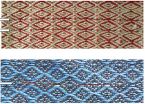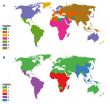(Press-News.org) The more time you spend getting to and from work, the less likely you are to be satisfied with life, says a new Waterloo study.
Published in World Leisure Journal, the research reveals exactly why commuting is such a contentment killer--and surprisingly, traffic isn't the only reason to blame.
"We found that the longer it takes someone to get to work, the lower their satisfaction with life in general," says Margo Hilbrecht, a professor in Applied Health Sciences and the associate director of research for the Canadian Index of Wellbeing.
While commuting has long been thought to have some upsides, like providing time to unwind and transition from the workday, the new findings suggest the opposite is true for most people.
The researchers analyzed data from Statistics Canada to better understand the links between commute time and well-being. They found that on top of being linked to lower life satisfaction, long commute lengths are related to an increased sense of time pressure.
"Some people may enjoy a commute, but overall, longer travel time is linked to feelings of time crunch, which can increase stress levels," says Hilbrecht.
Lengthy commutes have already been linked to poor mental and physical health, including hypertension, obesity, low-energy and illness-related work absences.
Beyond bad traffic, the researchers found one other factor to be highly correlated with commuters' life satisfaction: physical activity.
"We learned that commuters who had time for physical leisure had higher life satisfaction," says Hilbrecht. "Physical activity can mitigate commuting-related stress if workers can include it in their daily routines, but the obvious constraint is time scarcity. Longer commutes mean less time for other activities, which leads to lower life satisfaction."
Other factors linked to higher life satisfaction among commuters include flexible work hours and a higher household income. According to the study, women reported higher levels of time pressure, as did those with a partner.
Hilbrecht hopes that the new findings will help contribute to the development of programs and policies to support better health.
"The message to employers is that encouraging flexible work hours or providing time for physical leisure can pay dividends in their employees' satisfaction with life."
Hillbrecht acknowledges that this may not be an easy sell, but stresses the importance of starting the conversation.
"A long commute is detrimental to health. Maybe it's better to take a job that pays a little less money but is closer to home. If you have a choice, it's worth looking at the impact of the commute on well-being."
INFORMATION:
Is your inbox burning you out? Then take heart - research from the University of British Columbia suggests that easing up on email checking can help reduce psychological stress.
Some of the study's 124 adults -- including students, financial analysts medical professionals and others -- were instructed to limit checking email to three times daily for a week. Others were told to check email as often as they could (which turned out to be about the same number of times that they normally checked their email prior to the study).
These instructions were then reversed for ...
RIVERSIDE, Calif. - Geckos, found in places with warm climates, have fascinated people for hundreds of years. Scientists have been especially intrigued by these lizards, and have studied a variety of features such as the adhesive toe pads on the underside of gecko feet with which geckos attach to surfaces with remarkable strength.
One unanswered question that has captivated researchers is: Is the strength of this adhesion determined by the gecko or is it somehow intrinsic to the adhesive system? In other words, is this adhesion a result of the entire animal initiating ...
An efficient method to harvest low-grade waste heat as electricity may be possible using reversible ammonia batteries, according to Penn State engineers.
"The use of waste heat for power production would allow additional electricity generation without any added consumption of fossil fuels," said Bruce E. Logan, Evan Pugh Professor and Kappe Professor of Environmental Engineering. "Thermally regenerative batteries are a carbon-neutral way to store and convert waste heat into electricity with potentially lower cost than solid-state devices."
Low-grade waste heat is an ...
New Rochelle, NY, December 3, 2014--Hereditary angioedema (HAE), a rare genetic disease that causes recurrent swelling under the skin and of the mucosal lining of the gastrointestinal tract and upper airway, usually first appears before 20 years of age. A comprehensive review of the therapies currently available to treat HAE in adults shows that some of these treatments are also safe and effective for use in older children and adolescents. Current and potential future therapies are discussed in a Review article in a special issue of Pediatric Allergy, Immunology, and Pulmonology, ...
Typhoon Hagupit continues to intensify as it continued moving through Micronesia on Dec. 3 triggering warnings. NASA's Aqua satellite passed overhead and captured an image of the strengthening storm while the Rapidscat instrument aboard the International Space Station provided information about the storm's winds.
The International Space Station-RapidScat instrument monitors ocean winds to provide essential measurements used in weather predictions, including hurricanes. "RapidScat measures wind speed and direction over the ocean surface and captured an image of Hagupit ...
This news release is available in French.
Quebec City, December 3, 2014--Researchers at Université Laval's Faculty of Science and Engineering and Centre for Optics, Photonics and Lasers have developed smart textiles able to monitor and transmit wearers' biomedical information via wireless or cellular networks. This technological breakthrough, described in a recent article in the scientific journal Sensors, clears a path for a host of new developments for people suffering from chronic diseases, elderly people living alone, and even firemen and police officers.
A ...
Researchers at North Carolina State University have for the first time mapped human disease-causing pathogens, dividing the world into a number of regions where similar diseases occur.
The findings show that the world can be separated into seven regions for vectored human diseases - diseases that are spread by pests, like mosquito-borne malaria - and five regions for non-vectored diseases, like cholera.
Interestingly, not all of the regions are contiguous. The British Isles and many of its former colonies, such as the United States and Australia, have similar diseases ...
Good news on the panda front: Turns out they're not quite as delicate - and picky - as thought.
Up until now, information gleaned from 30 years worth of scientific literature suggested that pandas were inflexible about habitat. Those conclusions morphed into conventional wisdom and thus have guided policy in China. But a Michigan State University (MSU) research associate has led a deep dive into aggregate data and emerged with evidence that the endangered animal is more resilient and flexible than previously believed.
Vanessa Hull is a postdoctoral research associate ...
Irvine, Calif., Dec. 3, 2014 - High fecal counts frequently detected at so-called "baby beaches" may not be diaper-related. UC Irvine researchers found that during summer months, small drainpipes emptying into enclosed ocean bays have a disproportionate impact on calmer waters. The findings were published Tuesday in the journal Environmental Science & Technology.
Researchers have long known that creeks and tributaries foul coastal waters with major winter storm runoff. But dry seasons like the one that just concluded can spell potential peril, too. Runoff from watering ...
When it comes to getting out of a tricky situation, we humans have an evolutionary edge over other primates. Take, as a dramatic example, the Apollo 13 voyage in which engineers, against all odds, improvised a chemical filter on a lunar module to prevent carbon dioxide buildup from killing the crew.
UC Berkeley scientists have found mounting brain evidence that helps explain how humans have excelled at "relational reasoning," a cognitive skill in which we discern patterns and relationships to make sense of seemingly unrelated information, such as solving problems in unfamiliar ...





